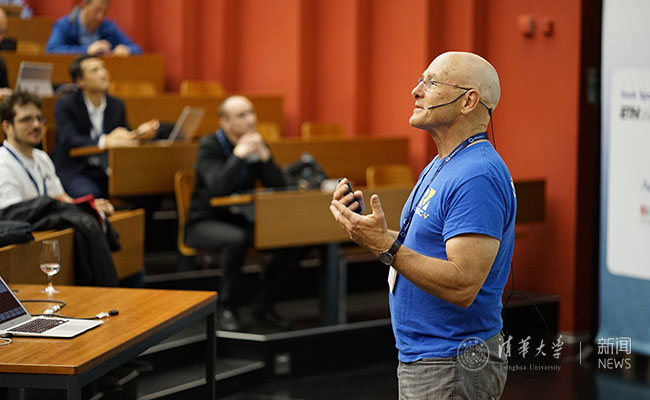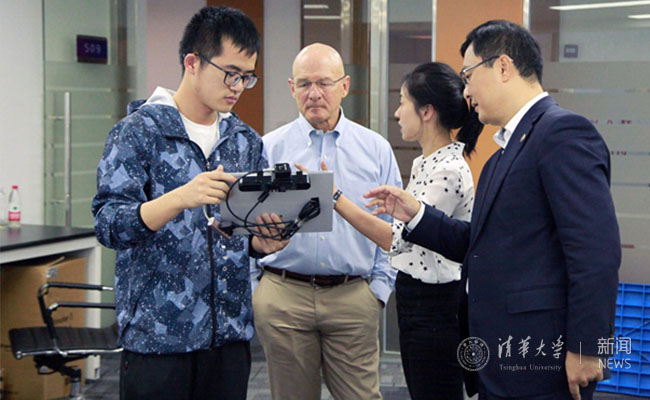On 12th June during the RISC-V (pronounced “risk-five”) Workshop in Zurich, Dr. Patterson announced the creation of the RISC-V International Open Source Laboratory (RIOS Laboratory) at the Tsinghua-Berkeley Shenzhen Institute (TBSI).

David Patterson announces the creation of the RIOS Laboratory at TBSI during the RISC-V Workshop Zurich.
A world-renowned expert in the field of computer architecture, Dr. Patterson is the Pardee Professor of Computer Science Emeritus at UC Berkeley; co-winner of the 2017 A.M. Turing award; and member of the National Academy of Engineering, National Academy of Sciences, and the American Academy of Arts and Sciences. Dr. Patterson also has a long history of close collaboration with Tsinghua University, and was awarded an Honorary Doctorate in 2018.
RISC-V, first released in 2011, is the latest UC Berkeley RISC architecture, and is an open, free instruction set architecture enabling a new era of processor innovation through open standard collaboration. Dr. Patterson coined the acronym RISC (Reduced Instruction Set Computer) and led the seminal Berkeley RISC project between 1980 and 1984.
Deriving its name from the Spanish word for “rivers”, the RIOS Laboratory will collect resources from many avenues to create a force that will transform the RISC-V landscape while promoting openness and cooperation. The nonprofit organization will also accelerate the industrialization of global RISC-V technology as it responds to development trends in the global CPU industry, meets the needs of Guangdong-Hong Kong-Macao Greater Bay Area enterprises, and helps to raise the RISC-V ecosystem to state-of-the-art. Dr. Patterson will serve as laboratory director, with TBSI providing operational support.

David Patterson meets with students and faculty during a visit to the Tsinghua-Berkeley Shenzhen Institute.
Tsinghua University and UC Berkeley have a long history of cooperation, signing their first academic exchange agreement in 1979. Over the past 40 years, the two universities have remained committed to solving major global challenges and have conducted research collaborations in energy, environment, health, economics, social development, and other fields. With the support of the Shenzhen Municipal Government, the two universities further codified their cooperation by jointly establishing the Tsinghua-Berkeley Shenzhen Institute (TBSI) in 2014 to pursue interdisciplinary graduate education and research.


